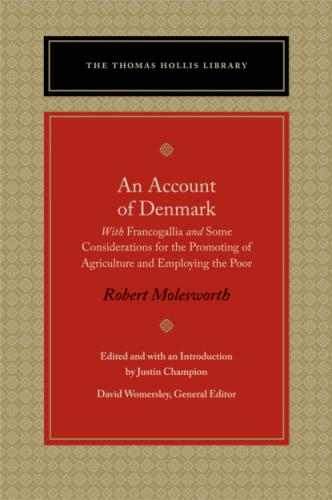Frequent Meetings of the Estates was a part of the very Fundamental Constitution: In those Meetings all Matters relating to good Government were transacted; good Laws were enacted, all Affairs belonging to Peace or War, Alliances, disposal of great Offices, Contracts of Marriages for the Royal Family, etc. were debated. The imposing of Taxes, or demanding of Benevolences was purely accidental; no constant Tribute being ever paid, nor any Money levied on the People, unless either to maintain a necessary War with the advice and consent of the Nation, or now and then by way of Free-gift, to help to raise a Daughters Portion: the King’s ordinary Revenue at that time consisting only in the Rents of his Lands and Demesnes, in his Herds of Cattle, Forests, Services of Tenants in manuring and cultivating his Grounds, etc. Customs upon Merchandize being an Imposition of late crept into this part of the World; so that he lived like one of our Modern Noblemen, upon the Revenues of his own Estate, and eat not through the Sweat of his Subjects Brows.
His business was to see a due and impartial Administration of Justice executed according to the Laws; nay, often to sit and do it himself; to be watchful and vigilant for the welfare of his People, to Command in Person their Armies in time of War, to encourage Industry, Religion, Arts and Learning; and it was his Interest, as well as Duty, to keep fair with his Nobility and Gentry, and to be careful of the Plenty and Prosperity of his Commons.
This was the Ancient Form of Government in this Kingdom, which continued with very little variation (excepting that the Power of the Nobles encreased too much) till about Two and Thirty years ago, when at one instant the whole Face of Affairs was changed: So that the Kings have ever since been, and at present are, Absolute and Arbitrary; not the least remnant of Liberty remaining to the Subject; all Meetings of the Estates in Parliament intirely abolished, nay, the very Name of Estates and Liberty quite forgotten, as if there never had been any such thing; the very first and principal Article in the present Danish Law being, That the King has the Priviledge reserved to himself to explain the Law, nay, to alter and change it as he shall find good.16
It is easie for any considering Person to guess the Consequences of this, which are, frequent and arbitrary Taxes, and commonly very excessive ones, even in Times of Peace; little regard being had to the Occasion of them: So that the value of Estates in most parts of the Kingdom is fallen three Fourths. And it is worse near the Capital City under the Eye and Hand of the Government, than in remoter Provinces: Poverty in the Gentry, which necessarily causes extremity of Misery in the Peasants, Partiality in the distribution of Justice when Favourites are concerned; with many other Mischiefs which shall be hereafter more particularly mentioned; being the constant Effects of Arbitrary Rule in this and all other Countries wherein it has prevailed.
And because it is astonishing to consider how a free and rich People (for so they were formerly) should be persuaded intirely to part with their Liberties, I thought it very proper to give an account by what steps so great a Change and Revolution was brought about: The Particulars of which I have received not only from Eye-witnesses, but also from some of the principal Promoters and Actors in it.
Конец ознакомительного фрагмента.
Текст предоставлен ООО «ЛитРес».
Прочитайте эту книгу целиком, купив полную легальную версию на ЛитРес.
Безопасно оплатить книгу можно банковской картой Visa, MasterCard, Maestro, со счета мобильного телефона, с платежного терминала, в салоне МТС или Связной, через PayPal, WebMoney, Яндекс.Деньги, QIWI Кошелек, бонусными картами или другим удобным Вам способом.
